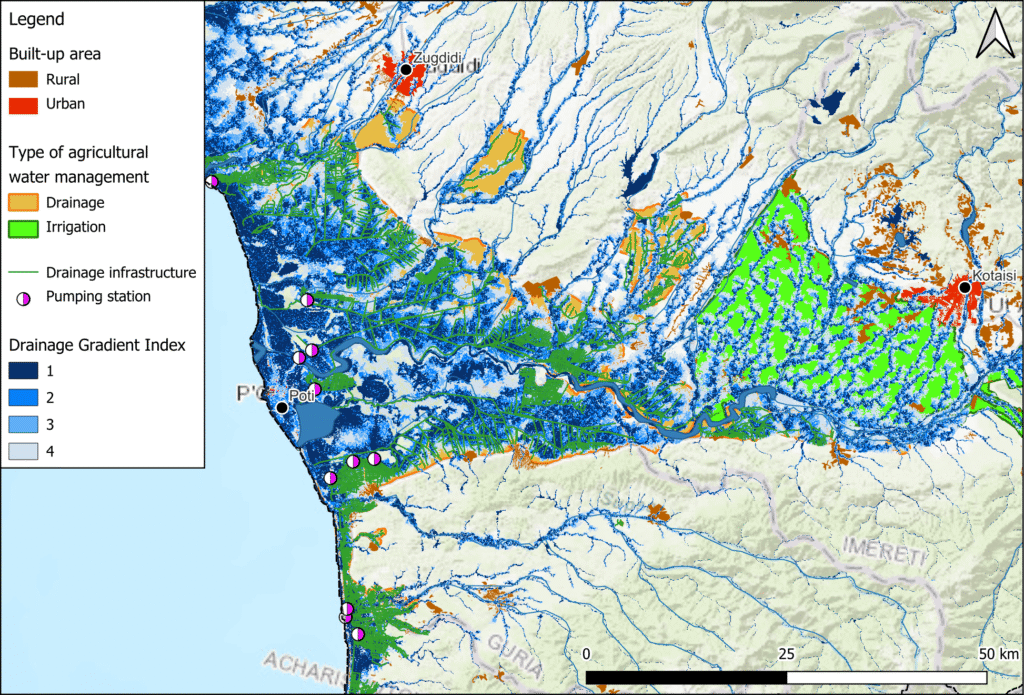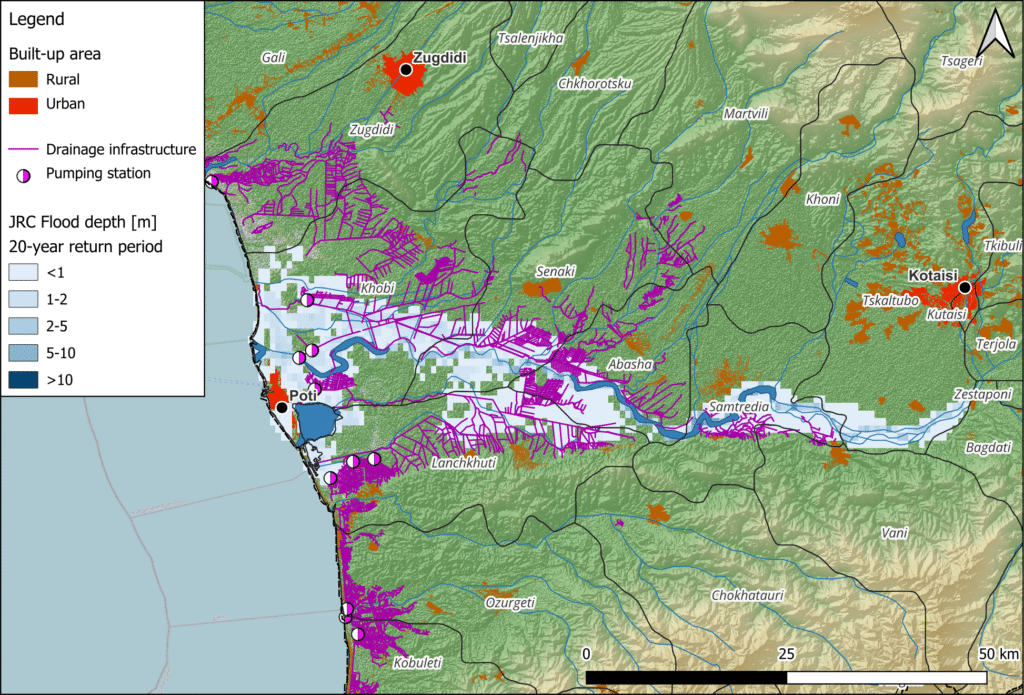The western part of Georgia, with its humid subtropical climate, faces significant challenges due to frequent waterlogging and flooding, impacting agricultural productivity and rural livelihoods. The existing drainage infrastructure, primarily developed during the Soviet era, has deteriorated due to insufficient maintenance and investment, reducing land productivity and increasing flood risks. The majority of the existing drainage area lies in the lower areas of the Rioni and Enguri River basins, where water is discharged into smaller rivers and large canals rather than directly into major rivers, requiring complex pumping systems for effective drainage management.
Climate change is expected to intensify extreme rainfall events, further stressing the outdated drainage systems and increasing flood risks. Additionally, institutional and legal challenges complicate effective drainage management, including fragmented responsibilities and funding constraints. Environmental considerations are also critical, as many of the drainage areas are adjacent to sensitive ecosystems, including the Kolkheti National Park and the Colchic Rainforests and Wetlands, a UNESCO World Heritage site.
This assessment will focus on evaluating the condition and performance of the current drainage systems in West Georgia, the potential and feasibility of their rehabilitation, analyzing the agricultural potential of rehabilitated land, assessing climate and environmental impacts, and identifying legal and institutional gaps. The findings will inform a feasibility study, providing strategic recommendations for rehabilitating and modernizing the drainage systems to enhance agricultural productivity, climate resilience, and environmental sustainability in West Georgia.





